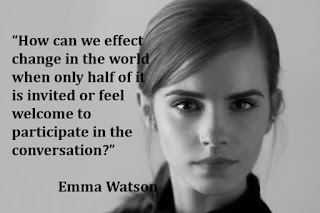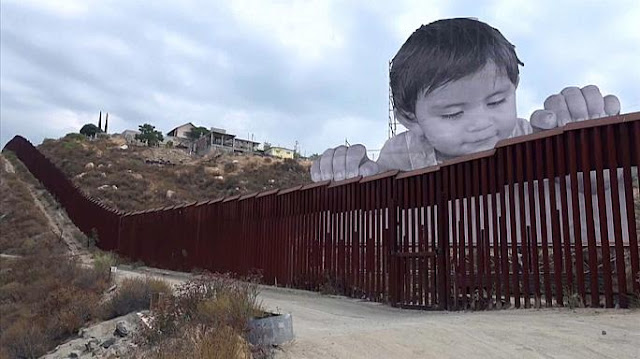I found many of Echols' points to be very interesting, such as that the women's movement more or less derived from other movements revolving around class and race. Female involvement within these other movements, although still somewhat reserved, lit a fire within women to speak out against social norms and find power in struggling for rights and equal opportunity and treatment of their being. In speaking about this she said, "These movements gave white women the opportunity to develop skills and break out of confining, traditional roles" (Echols 26). The key word to fixate in within this sentence, however, is "white."
Echols compared the roles and battles of white women and women of color, pointing in the direction of racial supremacy as well as male supremacy. A disunity existed between these two groups, much of which was caused by outside views of each. At this time in history, black and white women were focusing only on the inequalities among themselves, rather than embracing the similarity of their struggles. Again, this alludes to the reoccurring theme that stubbornness over race within the feminist movement weakened it as a whole. White women were looked at as women, while black women were looked at as black. Each was seen as unimportant, however, black women struggled further as they were recognized as "sexless" (Echols 32).
Echols passage connects to that of Ti-Grace Atkinson as well in its discussion of the battles fought by women and the question of rationality. Atkinson introduced a very interesting point in saying that, "The Women's Movement is the first in history with a war and no enemy" (20). White women, colored women and even male supporters of the feminist movement have in a way been fighting against no one, but this then begs the question: Why is the struggle so extended and difficult? Inequality is embedded within our society and within our minds, both racial and gender based. Labeling and separation show flaws within our systems, and it is still relevant today.
Echols compared the roles and battles of white women and women of color, pointing in the direction of racial supremacy as well as male supremacy. A disunity existed between these two groups, much of which was caused by outside views of each. At this time in history, black and white women were focusing only on the inequalities among themselves, rather than embracing the similarity of their struggles. Again, this alludes to the reoccurring theme that stubbornness over race within the feminist movement weakened it as a whole. White women were looked at as women, while black women were looked at as black. Each was seen as unimportant, however, black women struggled further as they were recognized as "sexless" (Echols 32).
Echols passage connects to that of Ti-Grace Atkinson as well in its discussion of the battles fought by women and the question of rationality. Atkinson introduced a very interesting point in saying that, "The Women's Movement is the first in history with a war and no enemy" (20). White women, colored women and even male supporters of the feminist movement have in a way been fighting against no one, but this then begs the question: Why is the struggle so extended and difficult? Inequality is embedded within our society and within our minds, both racial and gender based. Labeling and separation show flaws within our systems, and it is still relevant today.



Comments
Post a Comment